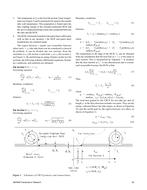Between the years of 1965 and 1975, some one million apartments were built on an industrial scale in Sweden. The intent was to provide the quickly growing population with modern housing featuring reasonably sized apartments and good functionality, such as central heating and modern kitchens and bathrooms. Some forty years later, many of these large multi-family dwellings are in dire need of substantial renovation and improvements to extend their life expectancy and improve their desirability.
Improved energy performance is, under the current circumstances, a demand from the property owners, the national government, and the European Union.
Previous experiences of trying to reduce energy use in buildings have made concerned parties aware that care must be taken to, among other things, avoid reductions in indoor air quality and minimize the risk of moisture damage in structures.
This paper is an overview of some common features of these Swedish multi-family dwellings and some of the approaches and problems related to improving their energy efficiency while trying to avoid negative impact on the indoor climate and maintaining components in a functionally sound state.
Included is also a brief overview of some currently ongoing research projects related to the improvement of the 1965–1975 Swedish multi-family dwellings.
The eventual challenge is to find a way to adapt these buildings in a controlled manner so that they will be energy efficient, economical, and functional and provide residents with appropriate indoor environments while being aesthetically pleasing.
Citation: Thermal Performance, International Conference, 2010
Product Details
- Published:
- 2010
- Number of Pages:
- 7
- File Size:
- 1 file , 550 KB
- Product Code(s):
- D-BUILDINGSXI-172


